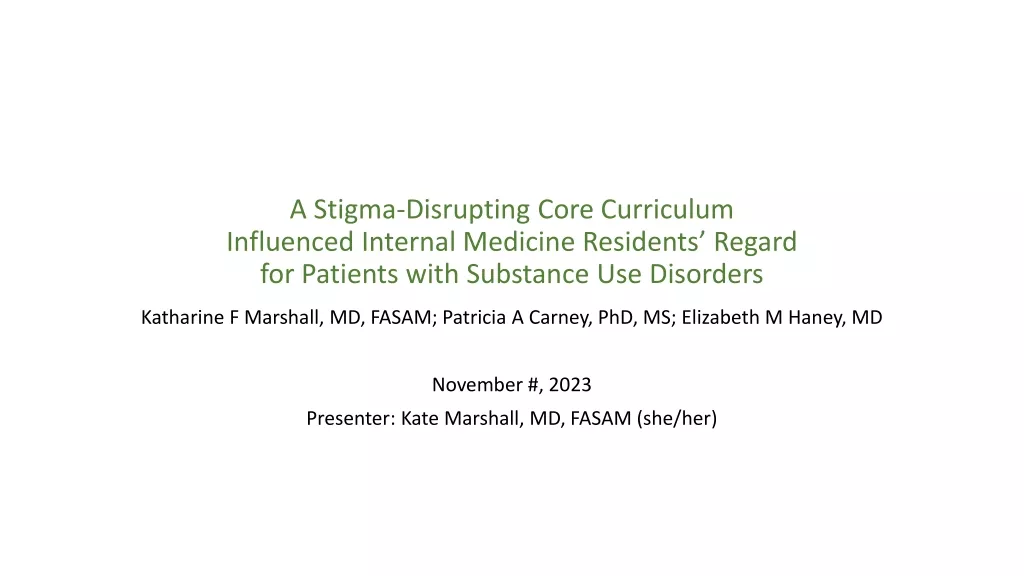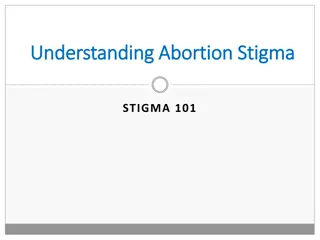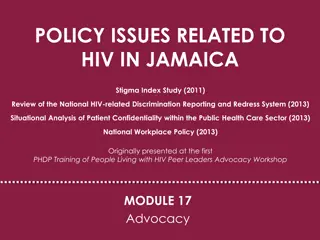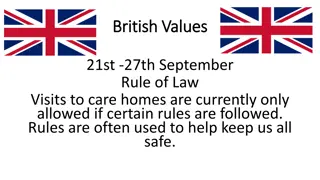The Role of Poo in Care Team Dynamics: A Study on Stigma and Skillset in Care Homes
Research conducted by Leah Fullegar, a Research Associate, sheds light on how stigma around fecal incontinence is managed by care staff in care homes. Findings reveal skillset devaluation and challenges faced by care providers. The study discusses the importance of inclusivity and team cohesion in providing quality continence care.
Download Presentation

Please find below an Image/Link to download the presentation.
The content on the website is provided AS IS for your information and personal use only. It may not be sold, licensed, or shared on other websites without obtaining consent from the author.If you encounter any issues during the download, it is possible that the publisher has removed the file from their server.
You are allowed to download the files provided on this website for personal or commercial use, subject to the condition that they are used lawfully. All files are the property of their respective owners.
The content on the website is provided AS IS for your information and personal use only. It may not be sold, licensed, or shared on other websites without obtaining consent from the author.
E N D
Presentation Transcript
Smells, Mess, and Presents The role of poo in care team dynamics Leah Fullegar Research Associate
About me Care Assistant Senior Carer Dementia Unit Manager FD Dementia Studies BA Applied Health and Social Sciences PhD Health Sciences (Almost!)
Research Project How is stigma around faecal incontinence (re)produced or mitigated by care staff in care homes, and what care practices aid care staff in this? Document Analysis Interviews 11 Care Assistants 5 Care Managers (1 RN) CQC Reports Frameworks 2 Senior Carers Guidelines
Findings Skillset Devaluation Solidifying the Line it was a real eye opener to me, I think it could have been kill or cure Care Assistant, Care Provider 3 All the residents on all floors all have different incontinence pads and one thing and another. You've got your slips, you've got your pantyliners, you've got the wraparound pants, the pull-up pants, things like that You'll have one person, so for instance you'll have two carers you're putting the pad on, and it's just getting one side on. Once you've got one side on, it's not too bad, but it's getting it on properly to be able to then move around and do the other side without getting hit in the face or kicked in the face or kicked in the leg or whichever. Care Assistant, Care Provider 5 [When I] first left to go into care, I remember going downstairs and telling my manager, and he just looked at me blank and said, What do you want to do that for? And I said, But I ve always wanted to, and he was like, What so you just want to wipe bums for your life? If you can t get your head around what you re doing, it s not for you. Senior Carer, Care Provider 3 I d be getting the phone out if I was in the staffroom going, Let s have a little look for another job . And they d be going, What do you mean? Well, you re not happy here, are you? Let s have a see if there s something down the local wherever, because you re not happy in this job, are you? Care Manager, Care Provider 3 Sometimes it feels almost taboo to tell someone that you re a carer Care Assistant, Care Provider 8 they re like oh you clean old people s bums Care Assistant, Care Provider 3
So What? Poo is important for team development and inclusion Dynamic skillset involved in supporting individuals with continence First exposure to continence care is often shocking and discouraging potentially contributing to high turnover of staff/staff attrition the friendship we form with them over something like a pad change Bonding through incontinence Ability to manage complex continence care interactions is akin to a qualification
Take Home Message: For team cohesion, care staff at all levels should take part in continence care Acknowledgement of skills and complexities of continence care can lead to development talk about poo more! Continence care can be difficult for new staff can we support them more?























